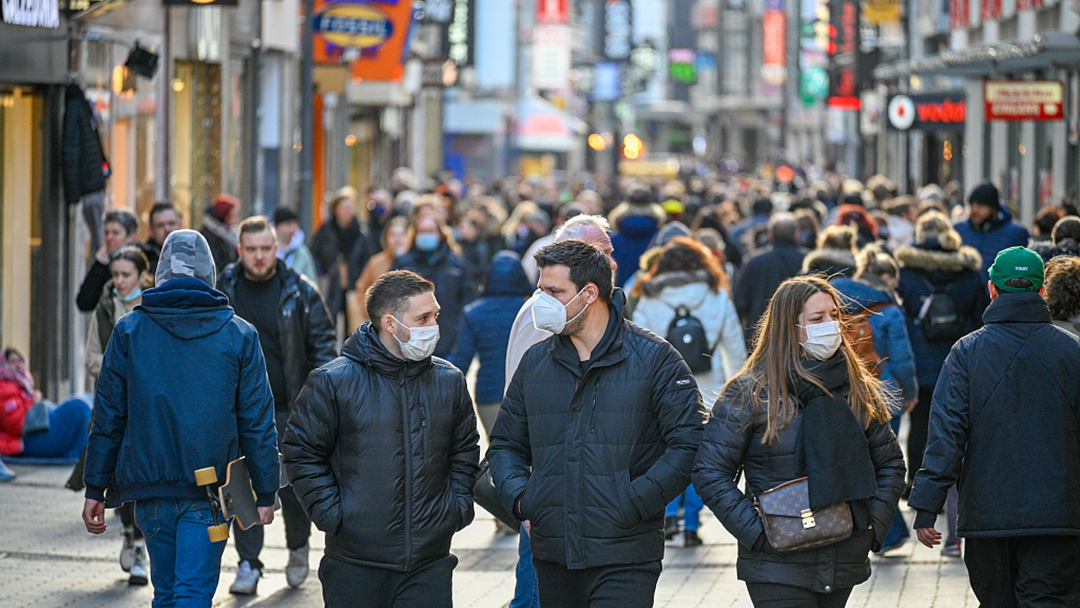
People walk on a pedestrian shopping street in Cologne, Germany, February 19, 2022. /CFP
People walk on a pedestrian shopping street in Cologne, Germany, February 19, 2022. /CFP
Economic growth in the euro zone jumped sharply in February as coronavirus restrictions were eased, IHS Markit survey showed on Monday.
Its purchasing managers's index (PMI), seen as guide to overall economic health, jumped to a five-month high of 55.8 in February from 52.3 in January, significantly above the median 52.7 forecast in a Reuters poll.
A figure above 50 indicates growth.
"The surge in the euro zone flash Composite PMI for February suggests activity is recovering well from the pandemic-related weakness over the winter," said Andrew Kenningham at Capital Economics.
The rise was attributed to the euro zone exiting two months of tough restrictions designed to slow the spread of the Omicron variant.
The service sector led the newfound optimism, as increased travel and tourism pushed it to its highest level since last November.
Factories had another solid month and the flash euro zone manufacturing PMI only dipped from January's 58.7, coming in at 58.4.
Activity could have been faster but lingering supply chain bottlenecks and booming demand meant factories were unable to keep up.
"Soaring energy costs and rising wages have added to inflationary pressures, resulting in the largest rise in selling prices yet recorded in a quarter of a century of survey data history," said Chris Williamson, chief economist at IHS Markit's.
"The intensification of inflationary pressures will add to speculation of an increasing hawkish stance" at the European Central Bank, he said.
The survey showed that growth in the euro zone's powerhouse Germany was at a six-month high, with an index reading of 56.2.
The second-biggest economy, France, was doing even better, with growth at an eight-month high and an index reading of 57.4.
(With input from agencies)

